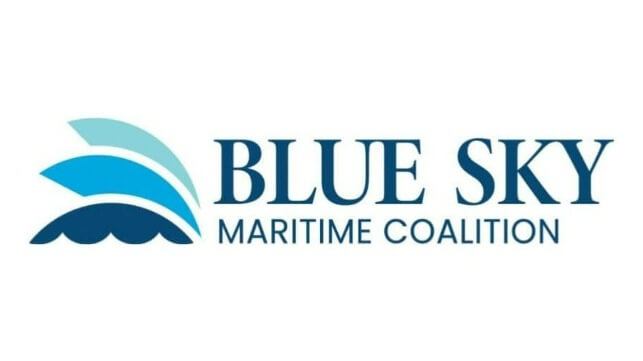Blue Sky Maritime Coalition Releases “Pathways to Net-Zero 2050”

[By: Blue Sky Maritime Coalition]
Blue Sky Maritime Coalition (BSMC) President and CEO, David Cummins, announced the publication today of the Coalition’s inaugural position paper, “Fuels and Propulsion Systems,” the first in the series “Pathways to Net-Zero 2050 in the North American Marine Shipping Industry.” The white paper was written by Blue Sky Founding Member Vanderbilt University Climate Change Initiative based on the work performed by the Coalition since its launch last June, as well as some of the work underway at other global organizations.
“This position paper is a starting point for developing Blue Sky’s overall roadmap to 2050,” stated Cummins. “While this report is not meant to prescribe the exact solutions that we must execute, it does provide a summary of our Coalition’s initial thoughts on how to best accelerate a transition of the maritime value chain in the U.S. and Canada towards net-zero emissions. From this starting point, we plan to leverage industry information and collaborative insights from across our diverse membership to pursue, challenge, and update this positional thinking as a critical approach to achieving our goals.”
The Coalition plans to build upon this work to look at the transition of other key areas beyond fuels and propulsion systems, including implications for supporting policies and regulations, financial and commercial contracting, and measurement, digitalization and industry-wide optimization practices that will collectively lead to a net-zero future by 2050.
“The marine shipping sector is complex, varied, and presents unique challenges to decarbonization,” stated Vanderbilt’s Dr. Leah Dundon, architect of the paper. “With incredibly long-lived infrastructure, the practical reality is that achieving net-zero will take time and there will not be a single solution for all marine shipping applications. LNG and other low-carbon based fuels will serve as important transition fuels that lower carbon emissions while carbon-neutral and no-carbon fuels and propulsion systems begin to reach commercial viability and scale.
Concerted study and efforts directed to decarbonization are more likely to be successful where they include input from the full value-chain of stakeholders. This report from Blue Sky Maritime Coalition is an important guidance document as marine shipping stakeholders navigate the transition to a low- carbon economy.”
“Dr. Leah Dundon and her team at Vanderbilt University Climate Change Initiative, a Blue Sky Founding Member, adeptly led this initiative, and I am proud to share the results of this successful collaboration with the maritime community,” concluded Cummins.
The products and services herein described in this press release are not endorsed by The Maritime Executive.

